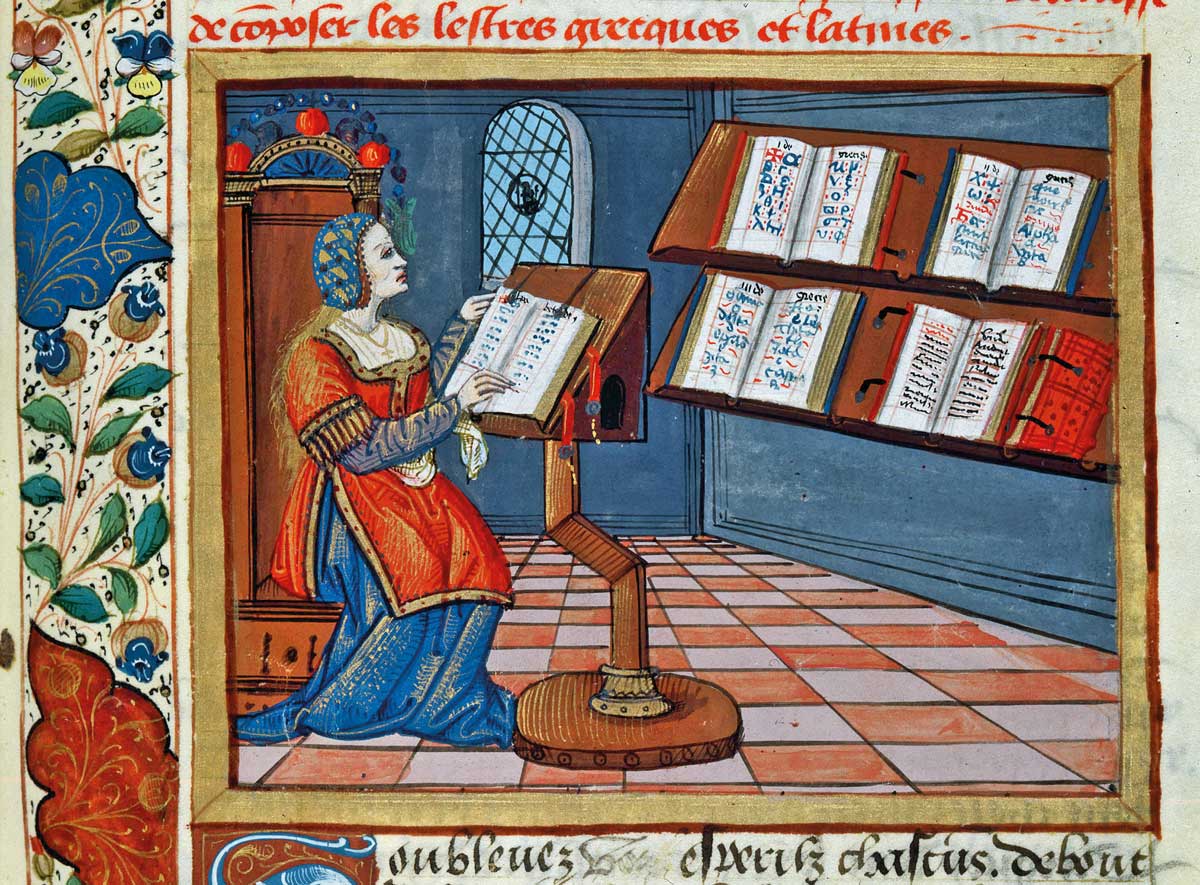cultură şi spiritualitate
Will the pandemic see a boom in local history, or will it spur a desire for global perspectives? Perhaps both.
 A woman illuminating the ‘Book of the Prudent and Imprudent’, by Catherine d’Amboise, 1507 © Leonard de Selva/Bridgeman Images.
A woman illuminating the ‘Book of the Prudent and Imprudent’, by Catherine d’Amboise, 1507 © Leonard de Selva/Bridgeman Images.
The events of the past few months have changed all our lives in ways we could not have imagined at the start of the year. Back in January, historians were playfully predicting what our version of the ‘Twenties’ might look like: would it be a repeat of the Roaring 1920s, or would it be more like the 520s, the 1020s, or 1620s? Those carefree jokes make poignant reading now.
We can predict, but cannot yet foresee, how this crisis and its long-term impact will influence the practice of history. There are immediate personal and professional challenges to face for students, teachers and researchers; schools and universities are hastening to adapt, but there are serious questions about how financial insecurity, social inequality and uneven access to resources, all of which have been intensified by the pandemic, will affect the field for years to come.
There may also be less tangible ways in which it might influence our work in future. Will it change our scholarly priorities? Surely we will be more alert to thinking about the historical experience of plagues and epidemics, even after the current rash of Black Death thinkpieces has died down.
Then there is the issue of the resources we use. Institutions that make their collections easy to discover and use digitally will receive more attention than ever from researchers unable to visit libraries in person. That in itself can affect the kinds of sources which attract scholarly interest and drive future directions for research. If continuing travel restrictions mean scholars are limited to their immediate area, will historians respond by broadening their fields of interest, becoming more eager to travel far abroad in mind even when they cannot travel in body? Or will we instead see a golden age of local history, as researchers decide to make the best of those resources closest at hand?
Even as we have been forced ever more into the virtual realm, a place of disembodied heads floating in Zoom meetings, many people have found comfort in some of the oldest crafts in the world – gardening, baking bread – as if the physical act of grasping hold of dirt or dough was an antidote to having so many other forms of contact snatched away into the intangible. Alongside an increased dependence on online resources, I wonder if we will see growing digital fatigue and frustration with the limitations of these tools, necessary and useful as they are. I’m grateful for e-books, of course, but they do make me miss real books – books you can come across by accident on a library shelf, without having to wrestle with an online catalogue which never understands what you’re looking for; books you can flick through and browse, touch, smell and feel, seeing the marks of the people who have touched them before you. This all shapes how we read, how we engage with our sources.
The weeks of lockdown, when it was not possible to travel further than a few miles from home, seemed to make some people more intensely aware of their local area, of their immediate neighbours and small changes visible from day to day – a tree gradually coming into leaf, fluctuating numbers of cars on the road, looks on the faces of strangers in the street. The joke going around was that it was like living in a Regency novel and it was indeed a sudden plunge into pre-modern estimations of distance and time – helpful for historians of earlier periods to understand from personal experience, as well as in theory.
As we deal with the unusual experience of isolation, it has also been popular to make comparisons with the lives of medieval anchorites, or monks and nuns. Though in many ways these are only surface parallels, it may again turn more scholarly interest in the direction of that way of life, until now so foreign to most of us. As historians, there is one thing we can learn from them: physical isolation does not have to limit the scope of your interests or the freedom of your mind. From their cells and cloisters, medieval historians did often write what we would now call local history, chronicles of their own institutions and surrounding areas, and very useful they are too. But they also wrote ambitious ‘world chronicles’, aspiring to tell the history of all human civilisation known to them, with a vast temporal and geographical remit covering places and peoples they had never seen, except in imagination. Perhaps that is the kind of ambition we will need over the next few years.
Eleanor Parker is Lecturer in Medieval English Literature at Brasenose College, Oxford and writes a blog at aclerkofoxford.blogspot.co.uk.
Adaugă un comentariu
© 2024 Created by altmarius.
Oferit de
![]()
Embleme | Raportare eroare | Termeni de utilizare a serviciilor













Pentru a putea adăuga comentarii trebuie să fii membru al altmarius !
Alătură-te reţelei altmarius